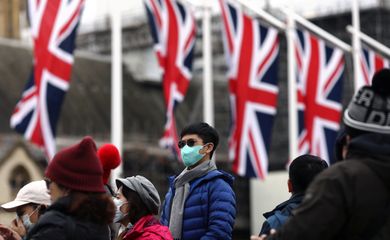Netherlands has 13 cases of omicron; Denmark and Australia confirm cases


The new variant of the coronavirus, called Ômicron, continues to spread around the world this Sunday (28), with 13 cases found in the Netherlands and two in both Denmark and Australia, even with more countries trying to isolate themselves through the imposition of travel restrictions.

Dutch health authorities announced that the 13 cases of the variant were detected among passengers on flights from South Africa that arrived in Amsterdam on Friday.
Authorities tested all 600+ passengers on those two flights and found 61 cases of coronaviruses, testing those infected for the new variant further.
"It is not unlikely that more cases will appear in the Netherlands," Health Minister Hugo de Jonge told a news conference in Rotterdam. "This could be the tip of the iceberg ."
First discovered in South Africa, the variant has already been detected in the UK, Germany, Italy, Netherlands, Denmark, Belgium, Botswana, Israel, Australia and Hong Kong.
The discovery of Ômicron, classified as a variant of concern (VOC) last week by the World Health Organization (WHO), has raised fears around the world that it could resist vaccination and prolong the near-lasting covid-19 pandemic two years.
Ômicron is potentially more contagious than previous variants, although experts do not yet know whether it will cause more or less severe disease compared to other strains.
Denmark's infectious disease authority said on Sunday it had recorded two cases of the strain in travelers from South Africa.
Health officials in Australia's most populous state, New South Wales, said two passengers who arrived in Sydney from southern Africa on Saturday night tested positive for the strain.
Austria was investigating a suspected case on Sunday, while in France Health Minister Olivier Veran said the variant was likely already circulating across the country.
Countries have imposed a wave of bans or restrictions on travel from southern Africa to try to contain the spread of the virus. Financial markets tumbled on Friday as investors worried the variant could impede a global recovery. Oil prices dropped by about $10 a barrel.
On Sunday, most Gulf stock markets fell sharply in early trading, with the Saudi index suffering its biggest single-day drop in nearly two years.
Measures in Israel
In the broader effort to keep the variant under control, Israel announced Saturday night that it would ban all foreigners and reintroduce counterterrorism phone-tracking technology to curb the variant's spread.
The country's prime minister, Naftali Bennett, said the ban, pending government approval, would last for 14 days. Authorities hope that within that period more information will emerge on the effectiveness of vaccines against Ômicron.
Many countries have imposed or are planning restrictions on travel from southern Africa. The South African government on Saturday denounced the measures as unfair and potentially harmful to its economy, arguing it was being punished for its scientific ability to identify early variants of the coronavirus.
Ômicron came at a time when many countries in Europe are battling an outbreak of covid-19 infections, with some restrictions on social activity being re-introduced to try to stop the spread of the disease.
The new variant also highlighted the huge disparities in vaccination rates across the world. Even with many developed countries giving third-dose boosters, less than 7% of people in low-income countries received the first injection, according to medical and human rights groups.
Text translated using artificial intelligence.





